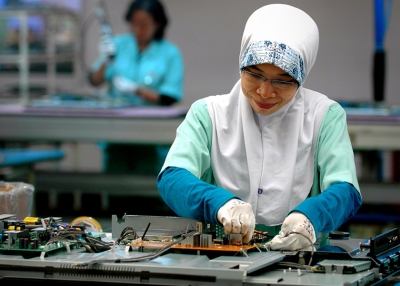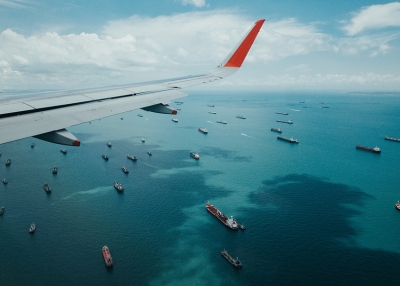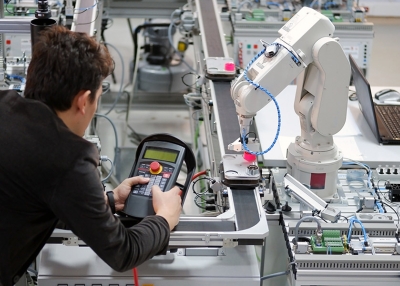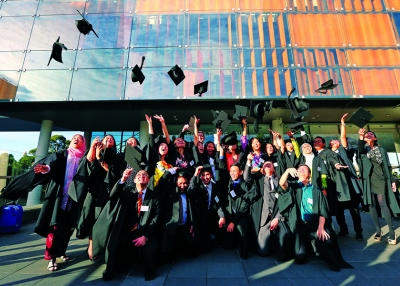Looking Ahead: Australia Needs Young Asia-Capable Talent Now More Than Ever
by Harrison Rule
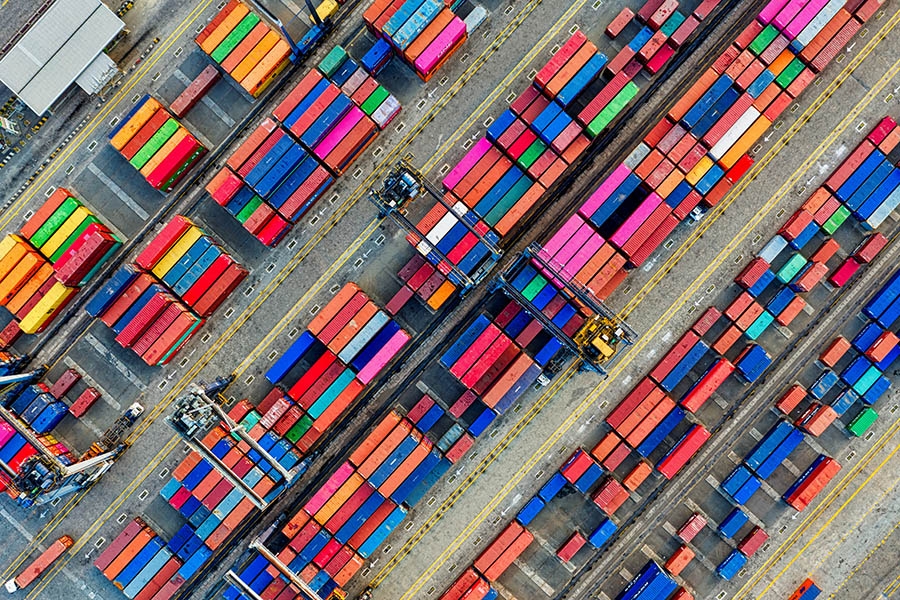
COVID-19 has hit all Australians hard, but for Asia-engaged young Australians this crisis has put our skills and our value in the firing line. It is up to us to be bold and decisively demonstrate the part we can play in leading Australia down the road of economic and cultural recovery.
Today’s young and early career Australians have heeded the call of the Asia-capable skills shortage like no generation before us. I, like many of my peers, am a product of the Asian Century White Paper, the New Colombo Plan, and a slew of state and federal government memorandums, statements, and initiatives. We have invested in the belief that Asia is of central importance to Australia’s national interest, with 49 per cent of Australian students undertaking international study pursing programs in the Indo-pacific and we have flocked to Asia-Pacific Colleges and programs in universities across the country.
However, with the devastating arrival of COVID-19, many graduating Asia-engaged young Australians will have found themselves out of work. The lucky few who remain employed face an uphill battle to apply our regional focus and Asia skillset to a private sector that is reeling from travel restrictions, economic constraints and growing isolationist attitudes.
The Problem
The coronavirus blame game has left Asia-engaged young Australians in a tricky spot. The Australian-led campaign for an international investigation in China’s handling of the virus has, whether intentionally or not, branded COVID-19 as a ‘China problem’ domestically. The Lowy Institute Poll 2020 found that only 23 per cent of Australians trust China, compared to a majority (52 per cent) in 2018. These record levels of distrust are further compounded by isolationist and nationalist rhetoric that have fuelled concerns by both Chinese and Japanese diplomatic missions in Australia about rising anti-Asia attitudes.
These issues further complicate the already significant challenges Asia-engaged young Australians faced in the pre-COVID world in convincing employers of the value of Asia-literacy. The 'Asia-Informed Student Mobility In The Indo-Pacific Era' roundtable report found that the widespread perception that Asia experience is valued by employers was at odds with the realities of returning students from the region. The report showed that human resources processes have, for the most part, failed to capture junior Asia-capable talent despite explicit support from senior executives.
In aggregate, these issues may render it difficult for talented young Asia-engaged employees, particularly those in junior positions, to speak up and use their skills to lead strategic discussions about the importance of Asia in their relevant sectors. These conversations will however be of paramount importance as Australian industry and government reposition in the long term to respond to the protracted consequences of COVID-19.
Possible Post-Pandemic Scenarios
As many private sector industries reconfigure their operations in the short term to service domestic markets in light of the travel and economic restrictions of COVID-19, a number of plausible long term scenarios present themselves – all of which have diverging implications for Asia-engaged young Australians.
PwC’s ‘Australia Rebooted 2020’ Report presents two such potential long-term scenarios: Fortress Australia and Enterprise Australia.
Fortress Australia
Characterised by “insular decision-making and high levels of federal intervention in industry” the Fortress Australia scenario describes an Australia that seeks to incentivise domestic production and increase self-reliance. PwC suggests in this scenario that, as foreign states bid for distressed Australian assets, the Australian Government may step in to preserve local industries. In this scenario increased focus is placed on the domestic protection of critical infrastructure and medical products.
Enterprise Australia
Enterprise Australia embraces "smarter regulation and accelerated digitisation” to enable private industry to grow Australia out of the crisis. Unlike Fortress Australia, in this scenario the Australian Government reduces limitations on access to foreign capital and barriers to trade, which sees the economy double-down on globalisation.
Both of these narratives, described in greater detail in the report, represent significant trade-offs – ranging from national security to living standards. While it may not initially seem it, Asia-engaged young Australians will have a leading role to play should Australia pursue either extreme.
The Case for Optimism
While times have undoubtedly been tough recently for young and early career Asia-engaged Australians, there is a clear emerging case for optimism.
Asia will unquestionably be the backbone of any future that wishes to emulate the Enterprise Australia scenario. To grow Australia out of the crisis, Australia’s private sector will need Asia-capable talent to help develop and market premium niches for export to our region. Whether it be through the development of premium online delis, aged care services, advanced manufacturing, or cyber managed services, Enterprise Australia will demand employees with Asian language skills, understanding of complex regional regulatory and political environments, and deep interpersonal relationships in the region.
Alternatively, while it may not seem immediately obvious, Asia-engaged Australians are required for success even in the insular, hawkish Fortress Australia scenario. Should industry and government pursue this path Australia is likely to see increased military expenditure and government regulation to counterbalance the geopolitical fallout of COVID-19. This would likely include increased attention given to the protection of critical infrastructure and essential services from outside influence. In this scenario, level-headed, regionally-informed employees will be crucial to balancing national security with industry development. Our recent experience of COVID-19 has demonstrated that even as we bunker down and turn our focus inwards, many of the solutions to our internal challenges hail from our region – the Singaporean contact tracing app that laid the groundwork for our own Covidsafe app is a prime example of this. Demand for Asia expertise in sectors like cyber security, defence industries, and utilities will likely soar as the private sector grapples with a delicate balancing act that can only be sustainably maintained by nuanced, regionally-informed perspectives.
What can be done now
Our investment in Asia-education has only just started to pay off. Regardless of which scenario Australia pursues, we have an emerging workforce that is primed to meet the challenges of a post-COVID economy. This should not however encourage complacence.
In the short term we should consider the following strategies to ensure Australia’s young Asia-capable talent is ready to help lead Australia down the road of economic and cultural recovery:
- Intensify existing Asia education initiatives to ensure as many students as possible are provided with opportunities to study Asia, particularly during periods in which in-region study is not possible
- Challenge HR processes to ensure businesses are recruiting, promoting, and fostering Asia-capable talent
- Heed the warnings of research, such as the 2017 'Match Fit: Shaping Asia Capable Leaders' report, that indicates that the level of Asia capability among the leadership of ASX 200 companies today is alarmingly low. Consider initiatives such as reverse mentoring to ensure Asia-engaged early career professionals can help bridge the Asia capability gap
Encourage business networks and centres for engagement with Asia to play a leading role in fostering dialogue among Asia-engaged Australians. Asia Society Australia’s ‘Gen A’ Leadership program, in which Asia-engaged early career professionals are connected with leaders across sectors, provides a strong model for these kinds of initiatives.
Above all, Asia-engaged young Australians must be bold and decisively demonstrate to our employers our key role in Australia’s future. While this crisis may have put our skills and our value to the test, Australia needs our help now more than ever.
The opinions expressed in this article are the author’s own and do not necessarily represent the views of PwC.
Looking Ahead is a new series of analytical papers curated by Asia Society Australia examining how the key sectors of Australia-Asia economic connectivity and cross-cutting policy issues are likely to change as a result of the COVID-19 pandemic, and how Australian leaders should prepare for these changes. The papers will be solutions-oriented, present possible scenarios and policy responses that governments and organisations may pursue.
Asia Society Australia acknowledges the support of the Victorian Government.



